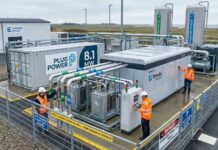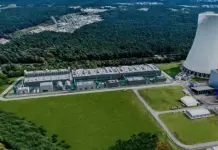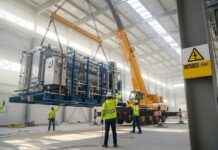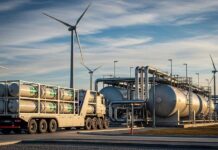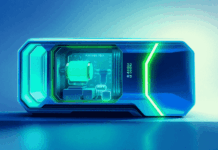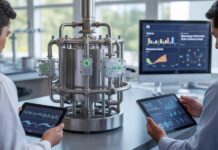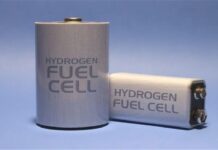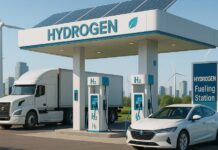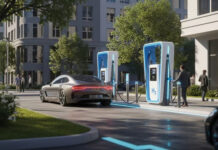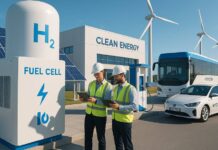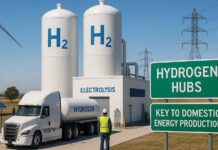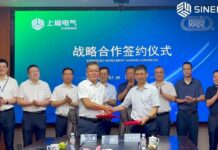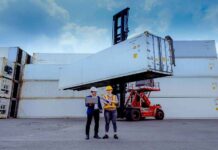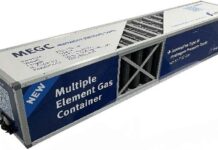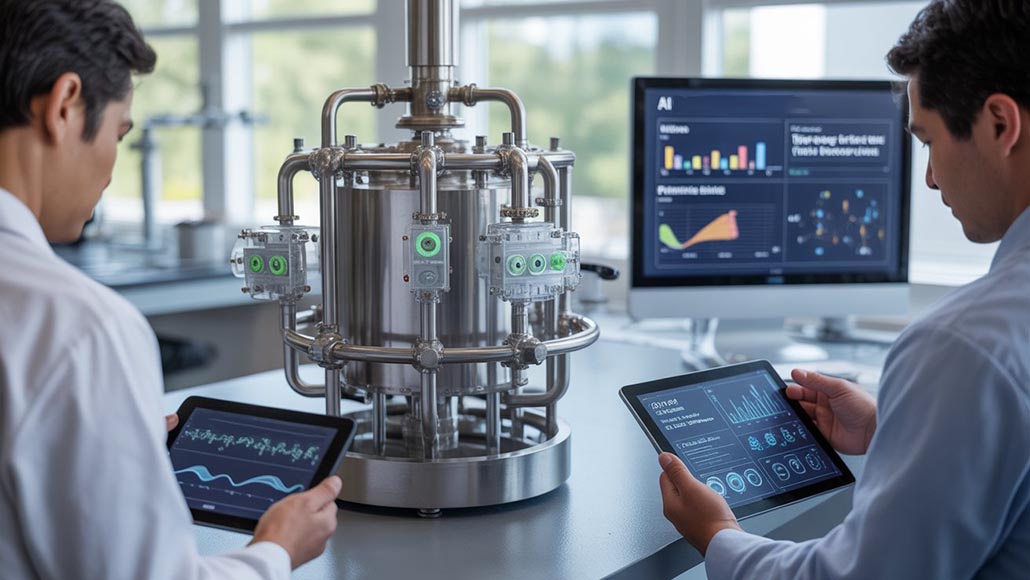Hydrogen fuel cells are fast emerging as a cornerstone when it comes to clean energy transition by offering a zero-emission alternative when it comes to power generation, industrial applications, and even transportation. However, despite their promise, fuel cells are intricate systems that require exact monitoring and control in order to operate at peak efficiency. Fluctuation within hydrogen purity, along with temperature, humidity, and low demand, can significantly affect both performance and lifespan.
This is where artificial intelligence and the Internet of Things, which are two transformative technologies, enter, which, when combined, can turn hydrogen fuel cells into adaptive energy systems, which are intelligent. When combined with the real-time connectivity and monitoring capabilities of IoT, the capacity of artificial intelligence to process large datasets and make predictions is indeed opening up new possibilities when it comes to fuel cell operations in terms of efficiency, cost-effectiveness, and also safety.
Apparently, the integration of these technologies is not a futuristic concept, and it is already being piloted and rolled out throughout sectors, such as stationary power systems, transportation fleets, and even renewable energy grids.
The part AI plays in fuel cell optimization
Artificial intelligence goes on to act as the brain of a smart fuel cell management system. By evaluating operational data like cell voltage, current, environmental conditions, and gas flow rates, AI algorithms can detect patterns, recommend or even automatically execute alterations, and also identify anomalies.
The key AI-driven capabilities happen to include
Predictive maintenance – By evaluating historical as well as live data, AI can forecast when a component is most likely to fail, thereby helping timely repairs before the costly breakdown takes place.
Performance tuning – Artificial intelligence alters parameters, such as stack temperature, fuel-to-air ratio, and even load distribution in order to maintain peak efficiency under conditions that are rapidly changing.
Degradation tracking – Artificial intelligence models can predict the rate at which fuel cell components degrade, thereby helping the operators to plan replacements and also optimize their usage.
For example, when it comes to heavy-duty hydrogen-powered trucks, artificial intelligence can dynamically adjust operational settings depending on the load capacity, terrain, and even weather conditions, thereby maximizing both energy efficiency along with range.
IOT connectivity when it comes to real-time tracking
The fact is that while AI evaluates, IoT connects. IOT systems make use of a network of sensors that are embedded within the fuel cell so as to consistently collect performance as well as environmental data. This data is then transmitted to cloud platforms or local control units for evaluation as well as action.
The benefits of IOT-enabled fuel cell tracking happen to include
Visibility is instant – Operators can access live data from anywhere, thereby ensuring they always have a complete view when it comes to system performance.
Early warnings – Real time alerts notify the technicians of any irregularities like temperature spikes, abnormal voltage dips, or hydrogen leaks before they even escalate into unwelcome failures.
Data-driven compliance – IT systems happen to provide precise logs for regulatory reporting as well as certification processes.
It is well to be noted that IOT also helps with remote diagnostics, thereby decreasing the requirements when it comes to on-site maintenance visits. This is specifically valuable in terms of remote hydrogen installations like offshore renewable energy hubs or even isolated industrial facilities.
Synergizing AI along with IoT for smarter management
The fact is that the magic takes place when AI as well as IoT work together. IOT makes sure of a constant stream of accurate data, whereas AI interprets that data in order to make intelligent decisions based on operations. This kind of synergy helps with closed-loop management, which is a system that not only detects problems but also, at the same time, responds to them in an autonomous way.
Major advantages of AI as well as IOT-integrated hydrogen fuel cell systems go on to include –
Dynamic load balancing – Altering the power output and that too in real time so as to match with fluctuating energy demand.
Hydrogen consumption forecast – Predicting the fuel requirements with high precision so as to optimize refilling schedules and at the same time reduce the waste.
Self-learning optimization – AI models enhance over time as they process more and more data, thereby elevating performance predictions and also fault detection precision.
In practice, a grid-connected hydrogen fuel cell plant can make use of AI so as to predict peak demand periods and IoT so as to monitor fuel stock, hence making sure of an uninterrupted supply and at the same time minimizing the functional expenditures.
Application throughout Industries
The AI as well as the IoT combination is not just limited to one segment, but it is already being tested as well as rolled out throughout various hydrogen fuel cell applications –
– Transportation fleet: Hydrogen-powered buses along with trucks benefit from predictive maintenance as well as optimized energy use and real-time operational tracking.
– Stationary power systems: Industrial sites, along with data centers, make use of AI-IOT fuel cell systems to get an uninterrupted and clean backup power.
– Marine application: Ships that run on hydrogen fuel cells go on to leverage artificial intelligence for load optimization as well as IoT so as to track safety-critical parameters.
In all the above cases, integration of AI and IoT decreases the functional costs, reduces downtime, and also puts in place the confidence within hydrogen as being a dependable energy carrier.
What are the challenges as well as considerations?
While the advantages are crystal clear, there are certain challenges as well when it comes to large-scale adoption.
Risk pertaining to cybersecurity – Connecting fuel systems to the internet goes on to introduce susceptibility, which must be managed with robust encryptions as well as security protocols.
Upfront expenditures – AI – IOT integration needs investments within hardware and software, as well as skilled labor.
Interoperability – Fuel cell systems coming from different manufacturers may make use of varied protocols, thereby complicating the data integration.
It is worth noting that industry collaboration as well as standardized frameworks are going to be critical in order to overcome these hurdles.
What lies ahead?
The next decade is most likely going to see completely autonomous hydrogen fuel cell systems, which are capable of self-regulating without any sort of human intervention. Advances within edge AI, AI processing done directly on the IoT devices, are going to help with faster decision-making without dependence on any kind of constant cloud connectivity.
Besides this, as hydrogen infrastructure expands, AI as well as IoT are going to play a very critical role in linking the production, storage, and even end-use systems into a seamless as well as data-driven supply chain. This will not just enhance the fuel cell performance, but at the same time, it will also make the hydrogen economy more resilient and viable in an economic way.
The mix of AI and IoT is more than just a technological upgrade – it is a strategic requirement in order to achieve complete potential when it comes to hydrogen fuel cells. Those who embrace this integration timely are going to gain a competitive advantage in an energy-driven world, which is increasingly looking to be clean.


